All Formats & Editions
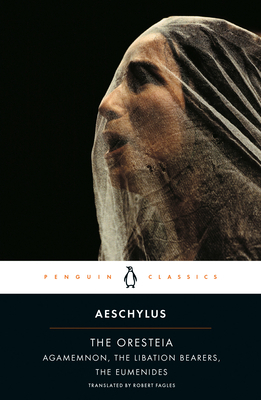
The Oresteia
In the Oresteia Aeschylus addressed the bloody chain of murder and revenge within the royal family of Argos. As they move from darkness to light, from rage to self-governance, from primitive ritual to civilized institution, their spirit of struggle and regeneration becomes...
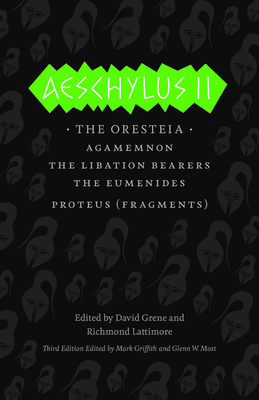
Aeschylus II: The Oresteia/Agamemnon/The Libati...
Aeschylus II contains "The Oresteia," translated by Richmond Lattimore, and fragments of "Proteus," translated by Mark Griffith. Many years ago, the University of Chicago Press undertook a momentous project: a new translation of the Greek tragedies that would be the ultimate...
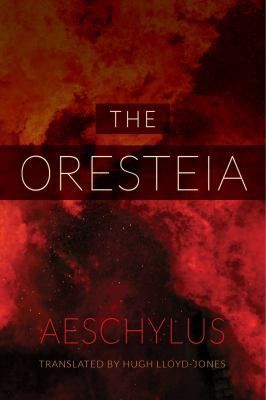
The Oresteia
The most famous series of ancient Greek plays, and the only surviving trilogy, is the Oresteia of Aeschylus, consisting of Agamemnon, Choephoroe, and Eumenides. These three plays recount the murder of Agamemnon by his queen Clytemnestra on his return from Troy with the captive...
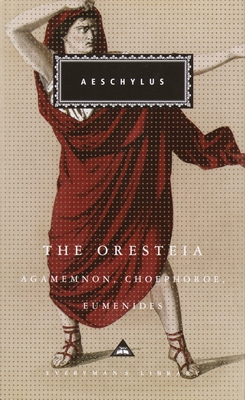
The Oresteia: Agamemnon, Choephoroe, Eumenides;...

The Oresteian Trilogy: Agamemnon; The Choephori...

The Oresteia - Aeschylus
The most famous series of ancient Greek plays, and the only surviving trilogy, is the "Oresteia " of Aeschylus, consisting of "Agamemnon," "Choephoroe," and "Eumenides." These three plays recount the murder of Agamemnon by his queen Clytemnestra on his return from Troy with the...
![Oresteia: Agamemnon. Libation-Bearers. Eumenides [Greek, Ancient (to 1453)] 0674996283 Book Cover](https://i.thriftbooks.com/api/imagehandler/l/6AFD00864A5F7A286E57636FE1021E657F421197.jpeg)
Oresteia: Agamemnon. Libation-Bearers. Eumenides [Greek, Ancient (to 1453)]
The tragic cycle of justice.
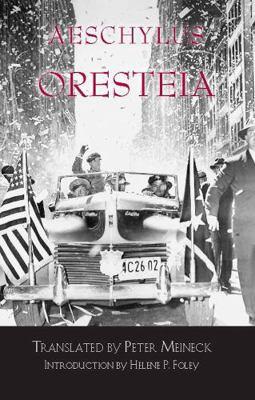
Oresteia
Meineck's translation is faithful and supple; the language employed is modern without betraying the grandeur and complexity--particularly the images--of the Aeschylean text. After reading this translation, one has but one further wish: to see it and hear it at Delphi, Epidaurus...
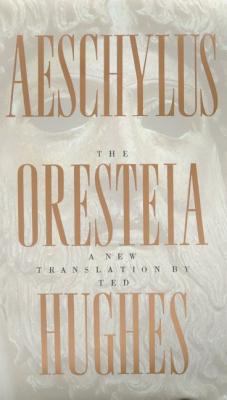
The Oresteia of Aeschylus : A New Translation b...
In the last year of his life, Ted Hughes completed translations of three major dramatic works: Racine's Phedre , Euripedes' Alcestis , and the trilogy of plays known as at The Oresteia , a family story of astonishing power and the background or inspiration for much subsequent...
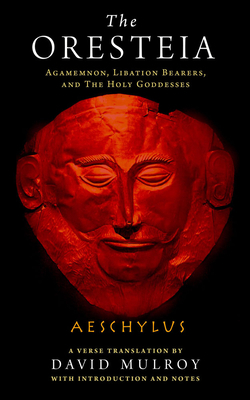
The Oresteia: Agamemnon, Libation Bearers, and ...
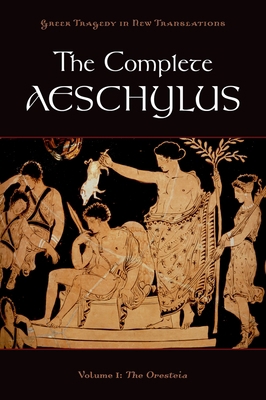
The Complete Aeschylus: Volume I: The Oresteia
Based on the conviction that only translators who write poetry themselves can properly re-create the celebrated and timeless tragedies of Aeschylus, Sophocles, and Euripides, the Greek Tragedy in New Translations series offers new translations that go beyond the literal meaning...
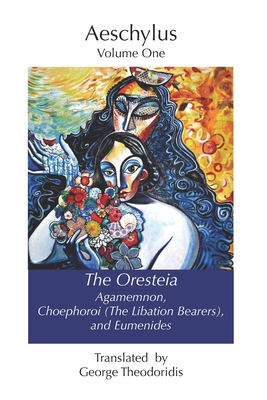
The Oresteia: Agamemnon, Choephoroi (The Libati...

The Oresteia of Aeschylus: A New Translation by...
In the last year of his life, Ted Hughes completed translations of three major dramatic works: Racine's Phedre, Euripedes' Alcestis, and the trilogy of plays known as at The Oresteia, a family story of astonishing power and the background or inspiration...
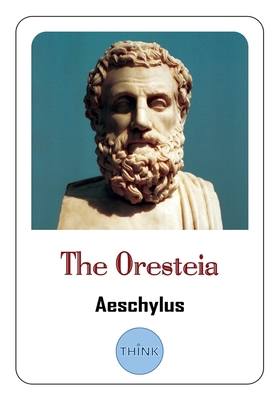
The Oresteia: A Trilogy of Greek Tragedies by A...
The Oresteia is a Trilogy of Greek Tragedies, written by: Aeschylus in the 5th Century BC.
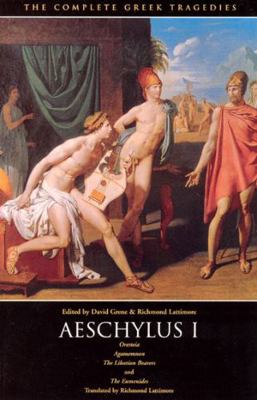
The Complete Greek Tragedies: Aeschylus I
"These authoritative translations consign all other complete collections to the wastebasket."--Robert Brustein, The New Republic "This is it. No qualifications. Go out and buy it everybody."--Kenneth Rexroth, The Nation "The translations deliberately...
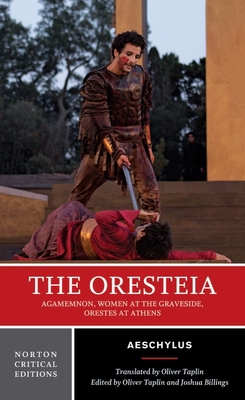
The Oresteia: A Norton Critical Edition
Ranked #2 Translation of 2018 by Open Letters Review This Norton Critical Edition includes:
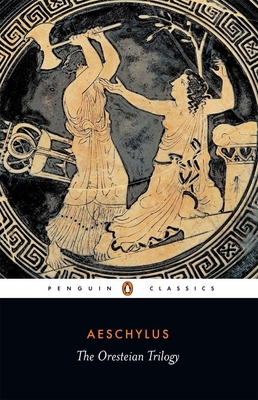
The Oresteian Trilogy: Agamemnon; The Choephori...
Aeschylus (525-c.456 bc) set his great trilogy in the immediate aftermath of the Fall of Troy, when King Agamemnon returns to Argos, a victor in war. Agamemnon depicts the hero's discovery that his family has been destroyed by his wife's infidelity and ends with his death at...
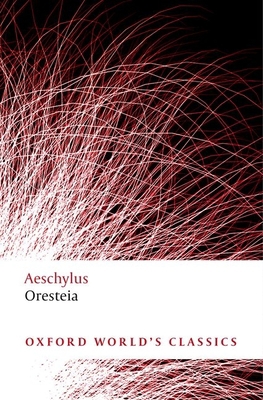
Oresteia
The Oresteia is the only trilogy of tragedy plays to survive from Ancient Greece. Agamemnon, Libation Bearers, and Eumenides have established the enduring themes of Greek tragedy--the inexorable nature of Fate, the relationship between justice, revenge, and religion. In this...
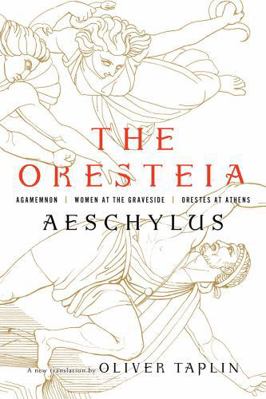
The Oresteia: Agamemnon, Women at the Graveside...
The most renowned of Aeschylus' tragedies and one of the foundational texts of Western literature, the Oresteia trilogy is about cycles of deception and brutality within the ruling family of Argos. In Agamemnon, afflicted queen Clytemnestra awaits her husband's return from war...
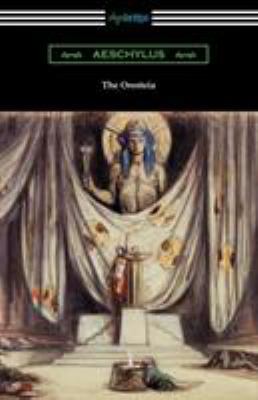
The Oresteia: Agamemnon, The Libation Bearers, ...
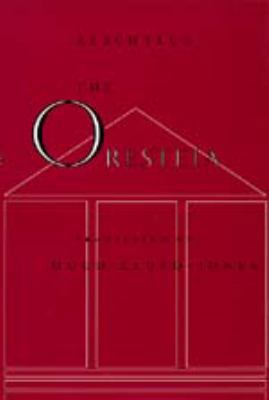
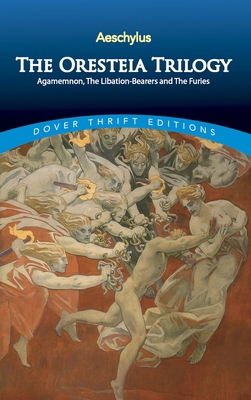
The Oresteia Trilogy: Agamemnon, the Libation-B...
Perhaps the greatest of the Greek tragedians, Aeschylus wrote 90 plays, but only seven have survived complete. Among them is this classic trilogy dealing with the bloody history of the House of Atreus. In Agamemnon, the warrior who defeated Troy returns to Argos and is murdered...
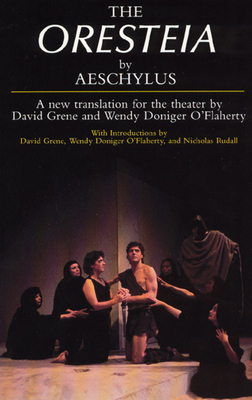
The Oresteia
Highly acclaimed as translators of Greek and Sanskrit classics, respectively, David Grene and Wendy Doniger O'Flaherty here present a complete modern translation of the three plays comprising Aeschylus' Oresteia and, with the assistance of director Nicholas Rudall, an...
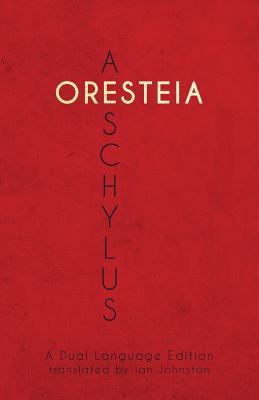
Aeschylus' Oresteia: A Dual Language Edition
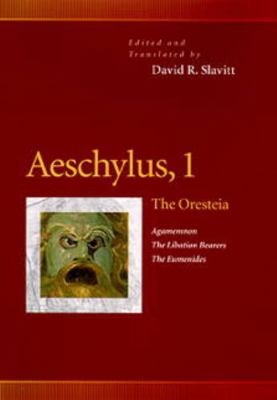
Aeschylus, 1: The Oresteia (Agamemnon, the Liba...
The Penn Greek Drama Series presents original literary translations of the entire corpus of classical Greek drama: tragedies, comedies, and satyr plays. It is the only contemporary series of all the surviving work of Aeschylus, Sophocles, Euripides, Aristophanes, and Menander...



